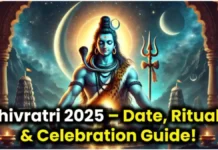Exploring the Hidden Truth: The Prevalence of Relationship Seekers on Dating Apps
Unveiling the Reality: How Many People on Dating Apps Are Already in a Relationship?
Are Dating Apps Deceiving You?
Hopeful swipers looking to find their next partner on a dating app have grown increasingly disillusioned in recent years. A new study reveals the potential root of their difficulties: many dating app users aren’t seeking romantic meetups at all.
Half of nearly 1,400 Tinder users surveyed said they weren’t interested in actually finding dates, according to research published last month. Nearly two-thirds reported they were already in a relationship, with some being married while on the app.
The researchers asked participants aged 18 to 74, recruited via online advertisements, a range of questions about their motivations for using Tinder, the number of matches and dates they’ve had, as well as psychological measures such as loneliness and self-esteem. They then studied participants’ self-reported level of satisfaction with the app, all submitted through an online questionnaire.
Many choose to stay active on dating apps even if they aren’t looking for dates or hookups for the same reasons they use social media, the study found. These platforms have become a similar source of entertainment and social connection, while also providing users with the confidence boost that comes with collecting likes and matches.
Study co-author Germano Vera Cruz, a data scientist and professor of psychology at the University of Picardie Jules Verne, said this dynamic results in a “game of deception.” Those who genuinely want real-life connections have a lower probability of finding success, he said, because fewer users are there with the same objective.
Some people feel deceived with the use of dating apps because each time you have a new platform, people think they might really find someone,” Vera Cruz said. “And then people go from platform to platform, but each time they are there, they are not satisfied.”
But those who start swiping merely as a form of distraction aren’t getting what they want out of the experience, either. The researchers found that Tinder users who reported the least satisfaction from the app are the ones using it to cope with negative emotions and other issues, such as an avoidant attachment style or psychological qualities like impulsivity.
Dr. Elias Aboujaoude, a clinical psychiatry professor at Stanford Medicine and a co-author of the study, said these findings line up with what he’s heard from patients who’ve told him they decided to discard the dating apps after years of trying them out.
There was the sense that they were spending too much time using them as entertainment or to distract themselves from other things,” Aboujaoude said. It can be overwhelming, and in some cases, it can lead people to this notion that the grass is always greener on the other side, like there’s always better options out there.
A 2020 Pew Research survey reported that online dating left significantly more Americans feeling frustrated than hopeful. People have also unleashed their frustrations online, with social media showcasing no shortage of posts from users lamenting their dating app experiences.
It’s just like a cesspool of people not knowing what they want and just drama and weird intentions,” one person explained in a TikTok video about why she got off the apps. It’s become almost like social media, that it’s so toxic but you’re kind of addicted to it because you do it for attention or whatever.
“Maybe things will be different on a different app. I don’t even know [if] it’s worth trying or just giving up for a while,” a Reddit user wrote in a recent post on the r/OnlineDating subreddit. “I’m so tired of this process that seems to be going nowhere & just makes me feel bad about myself.”
But the study reports a silver lining: People who use dating apps for their intended purposes are still the group most likely to achieve satisfaction — even if getting there requires wading through all the matches whose goals don’t align.
“We can’t deny the fact, though, that a big percentage of successful relationships now start online as well,” Aboujaoude said. “But you do need to approach dating sites with more circumspection and more selectivity, and to approach them for what they say they were designed for, which is to find romantic partners.”
Here are some tips for using dating apps more effectively:
- Be clear about your intentions from the start.
- Don’t swipe right on everyone.
- Take the time to read profiles and look at photos.
- Send thoughtful messages.
- Be patient and don’t get discouraged.
Remember, dating apps are just a tool. They can be a great way to meet new people, but they’re not a guarantee of success. The most important thing is to be yourself and to be open to meeting new people.
The Deception of Dating Apps: Are They Really Delivering What You Want?
In the era of digital connectivity, dating apps have gained immense popularity as a convenient and accessible means of finding romantic connections. However, recent studies have uncovered a disheartening truth – many users on dating apps are not genuinely interested in pursuing dates or relationships. This revelation has left countless individuals disillusioned, raising questions about the effectiveness of these platforms in fulfilling their intended purpose.
Unveiling the Truth
A comprehensive study conducted among nearly 1,400 Tinder users has shed light on the startling reality behind dating apps. Surprisingly, half of the participants expressed no genuine interest in pursuing real-life dates. Even more shocking, almost two-thirds of the respondents admitted to being in a committed relationship, including some who were married, while actively using the app. These findings highlight a significant disparity between users’ expectations and the actual outcomes they experience on dating apps.
The Motivations and Disconnect
The study, which encompassed participants ranging in age from 18 to 74, recruited through online advertisements, delved into the motivations behind using Tinder. It also explored the number of matches and dates individuals had experienced and evaluated psychological factors such as loneliness and self-esteem. The satisfaction of participants with the app was assessed through an online questionnaire.
Interestingly, the study revealed that many individuals continue to use dating apps even when they are not seeking dates or hookups. The underlying reasons for this behavior mirror those for using social media platforms – seeking entertainment, social connection, and deriving a boost in self-confidence from accumulating likes and matches. Consequently, dating apps have become a source of amusement and validation, leading to a “game of deception” where individuals genuinely seeking connections face diminished chances of success due to a lack of like-minded users.
The Illusion of Authenticity
Germano Vera Cruz, co-author of the study and a data scientist and psychology professor at the University of Picardie Jules Verne, explains that people often feel deceived by dating apps because each new platform brings the hope of finding a genuine connection. However, the reality is that fewer users on these platforms share the same objective, resulting in dissatisfaction and a perpetual search for alternative platforms.
On the flip side, those who engage with dating apps merely as a form of distraction or entertainment also fail to derive satisfaction from the experience. The study revealed that users who reported the lowest levels of satisfaction with the app were typically using it to cope with negative emotions or other personal issues, such as an avoidant attachment style or impulsive tendencies.
Expert Insights
Dr. Elias Aboujaoude, a clinical psychiatry professor at Stanford Medicine and co-author of the study, confirms that these findings align with what he has observed among patients who have grown disillusioned with dating apps over time. Many of them reported spending excessive amounts of time on the apps as a form of entertainment or escapism, ultimately leading to dissatisfaction. The endless options available on these platforms can create a sense that there is always someone better out there, fostering a belief that the grass is always greener on the other side.
The Reality of Online Dating
While online dating has undeniably led to successful relationships for many people, a 2020 Pew Research survey indicated that it left more Americans feeling frustrated than hopeful. This sentiment has been echoed across social media platforms, with numerous users sharing their frustrations and negative experiences with dating apps.
Dating app users often describe these platforms as a “cesspool” filled with drama, confusion, and unclear intentions. The toxic nature of the environment, combined with addictive tendencies, can lead to a love-hate relationship with dating apps.
Embracing Hope and Taking Control
Despite the challenges and disillusionment surrounding dating apps, there is still a glimmer of hope for those seeking meaningful connections. The study emphasizes that individuals who use dating apps for their intended purpose – finding romantic partners – are still the most likely to achieve satisfaction, even if it means encountering matches whose goals don’t align. The key lies in approaching dating apps with circumspection, selectivity, and realistic expectations.
To use dating apps more effectively, consider the following tips:
- Clearly communicate your intentions from the start: Let potential matches know what you’re looking for, whether it’s a casual date or a long-term relationship.
- Avoid swiping right on everyone: Take the time to evaluate profiles and photos, and be selective about whom you engage with.
- Send thoughtful and personalized messages: Instead of generic greetings, make an effort to stand out by demonstrating genuine interest in the other person.
- Exercise patience and resilience: Don’t get discouraged by setbacks or lack of immediate success. Building connections takes time and effort.
- Remember dating apps are tools, not guarantees: While they can be a great way to meet new people, success ultimately depends on being yourself and being open to genuine connections.
In conclusion, while the deception and disillusionment surrounding dating apps are significant concerns, there is still hope for those seeking meaningful connections. By approaching these platforms with realistic expectations, being selective, and remaining true to oneself, individuals can increase their chances of finding genuine romance in the vast digital landscape of online dating.
FAQs (Frequently Asked Questions)
1. Are dating apps completely useless? No, dating apps can still be effective tools for finding romantic connections. However, it’s important to approach them with realistic expectations and be mindful of the potential for deception and mismatched intentions.
2. Why do people continue to use dating apps if they are not interested in dating? Many individuals use dating apps for entertainment, social connection, and validation. The experience of accumulating likes and matches can be enticing, even if they are not genuinely seeking dates or relationships.
3. How can I make the most of dating apps? To make the most of dating apps, clearly communicate your intentions, be selective in your interactions, send personalized messages, exercise patience, and remember that success ultimately depends on being yourself and being open to genuine connections.
4. Are dating apps addictive? Dating apps can be addictive, especially when individuals use them as a form of distraction or escapism. The endless options available on these platforms can create a belief that there is always someone better out there.
5. Can I find genuine connections on dating apps? Yes, genuine connections can still be found on dating apps. While the presence of deception and mismatched intentions is a concern, approaching these platforms with circumspection and selectivity can increase the chances of finding meaningful connections.
































